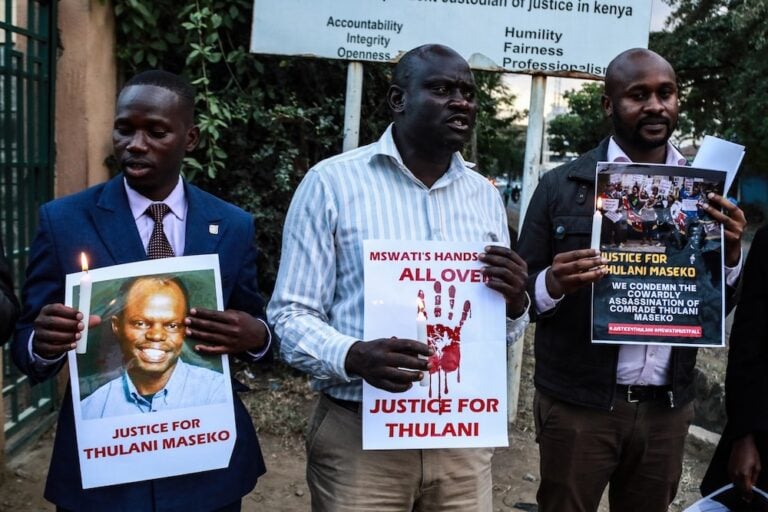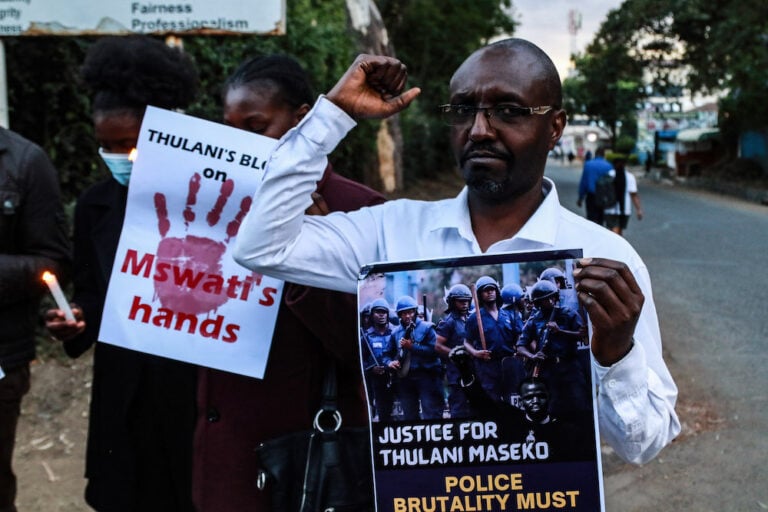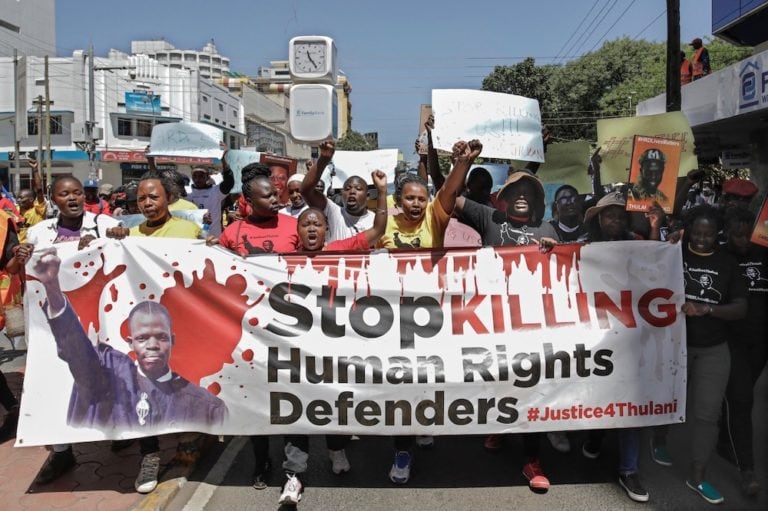(MISA/IFEX) – On 21 October 1998, the Deputy Chairperson of Swaziland’s Constitutional Review Commission (CRC), Promise Msibi, called for restrictions on South African journalists covering events in Swaziland. The “Swazi Observer” reported Msibi calling on the government to take drastic steps against the South African Broadcasting Corporation (SABC) for insulting the King in their elections […]
(MISA/IFEX) – On 21 October 1998, the Deputy Chairperson of Swaziland’s
Constitutional Review Commission (CRC), Promise Msibi, called for
restrictions on South
African journalists covering events in Swaziland. The “Swazi Observer”
reported Msibi calling on the government to take drastic steps against the
South African Broadcasting Corporation (SABC) for insulting the King in
their elections coverage. Msibi claimed that SABC reporter Snuki Zikelala
had made remarks in his report that undermined the dignity and integrity of
the King. However, the report declined to specify what remarks he had been
referring to. Msibi was quoted as saying: “Being soft and a God fearing
nation does not mean that we should fold our arms and keep quiet and allow
foreigners to insult our King to this extent. Swazis respect and are loyal
to the King as a head of state. Are we then expected to tolerate this type
of reporting? Time is over for us to tolerate such and we should stand up
and challenge this statement as well as the presence of South African
reporters and media houses to cover such events in this country. Government
needs to scrutinize such reporters before they can be allowed to cover
international events taking place in the country.”
When contacted by MISA, Zikelala denied making any comments about the King
in his reports. “It’s not our business to make any comments,” Zikelala told
MISA. He acknowledged though that several of the people he had interviewed
had made disparaging remarks about the Swazi monarch. Zikelala confirmed
that to date he had not been restricted in reporting on matters while in
Swaziland. However, he said he had been followed around by plain clothes pol
icemen for an entire day while covering the elections, but had eventually
confronted them and managed to lose them.
In another development, a “Times of Swaziland” columnist, Vusie Gunindza, in
a column which appeared on 21 October, accused the SABC television crew,
headed by Zikelala, of having staged a protest. “I was shocked to learn,”
the column read, “that one of the crew leaders, disappointed by the apparent
lack of chaos, decided to organise a handful of ghetto dregs to stage a
toyi-toyi so that they could film it … I refused to believe the story at
first, but when I saw the report the ‘drummer’ fitted hand in glove with the
script which I suspect was prepared weeks prior. The report, complete with
graffiti painting condemning Swaziland and all that it represents (and I
wouldn’t be surprised if they hadn’t also brought the ink spray and hired
the artist), the demonstrators had no placards (most
probably had no time to prepare any, given the urgency with which the play
was organised) and the camera: as you would expect any choreographed
performance was strictly confined to the loathsome group of nine or ten, to
ensure that the result was a complete prototype of strife and uncertainty as
planned.”
Justifying the publication of the column in the absence of more substantial
corroboration of the allegations, the “Times” editor, Mashomi Twala, said
the allegation of the SABC having staged the protest was an opinion that was
“quite widespread”. He told MISA, “I felt it was something we had to
express”. He admitted that they had made no effort to get a response from
the SABC. Gunindza was not available for comment when the newspaper was
contacted.
Zikelala, when contacted by MISA, categorically denied having staged the
protest. He speculated that the allegation was aimed at perpetuating a false
notion that Swazi people did not engage in protests and that when they did
occur, it was due to outside influences.


